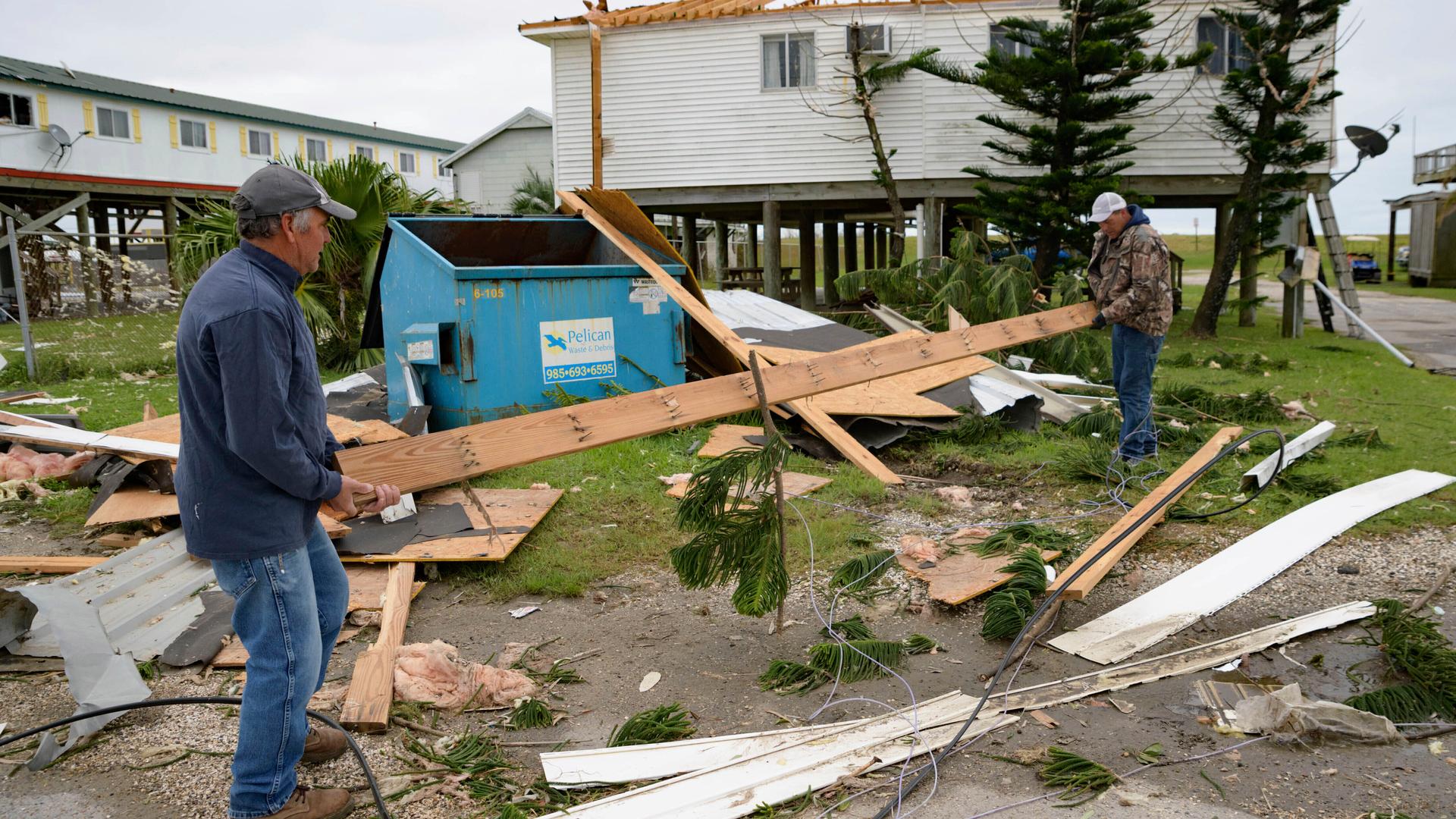Hurricane season is right around the corner. It’s the second year in a row when tropical storms and a pandemic have created the opportunity for overlapping disasters and “disaster fatigue.”
Officials worry that may leave residents in vulnerable areas less prepared than usual.
The Atlantic hurricane season starts June 1, but in each of the past six years, named storms — given to storms that exceed 39 miles per hour — have formed before that date. The National Hurricane Center will start issuing its routine tropical weather advisories on May 15, for the first time this year.
Improvements in satellite technology make it easier to spot these early storms, “but there’s also good reasons to suspect that there’s something really going on related to climate change,” said Kevin Trenberth, a distinguished scholar at the National Center of Atmospheric Research.
There is some evidence to suggest that storm season is starting earlier and ending later.
Related: Climate change is due to capitalism, but business and policy can help
“This is consistent with the idea that climate change is occurring. … and so the oceans are warming and the environment evidently is changing sufficiently to enable these tropical storms to occur.”
“This is consistent with the idea that climate change is occurring,” Trenberth said, “and so the oceans are warming and the environment evidently is changing sufficiently to enable these tropical storms to occur.”
Regional hurricane officials are meeting this spring to discuss moving the official start date for the Atlantic hurricane season in future years to May 15, a move that would bring it in line with the beginning of the Pacific basin season.
Another change this season: No more storms named after Greek letters. They were used last year for just the second time ever after the 21-name alphabetical list of storm names was exhausted.
After the record-breaking season ended, the World Meteorological Organization committee tasked with naming storms decided that the Greek-letter names used last year — nine in all, including Theta, Eta and Zeta — were confusing.
“Some of the names were similar sounding,” said Daniel Brown, a senior hurricane specialist at the National Hurricane Center. “Some of the names didn’t translate well into other languages that are used in the region, Spanish and French, so it was decided by the committee to no longer use that as a supplemental name list.”
Instead, there’s a second alphabetical list of names as a backup.
Last season’s Atlantic storm season was the most active ever, with 30 named storms, including back-to-back November hurricanes Eta and Iota, estimated to have impacted 7 million people in Guatemala and Honduras.
Overlapping disasters
The Caribbean islands were spared the worst of last year’s hurricanes.
“We really were quite pleased that we did not have any cyclones that would have put persons in emergency shelters because we know that opens up the conduit for the spreading of the COVID-19 virus.”
“We really were quite pleased that we did not have any cyclones that would have put persons in emergency shelters because we know that opens up the conduit for the spreading of the COVID-19 virus,” said Michelle Forbes, director of the National Emergency Management Organization for St. Vincent and the Grenadines.
But in a year of overlapping disasters, that changed for St. Vincent in early April, when the La Soufriere volcano erupted.
Forbes said nearly 20,000 people were displaced, and emergency shelters are still full.
Thick volcanic ash deposits mean even average rains can trigger dangerous landslides and flooding, which the National Emergency Management Organization has been warning against through videos posted on Facebook.
“That’s a different twist now to the hurricane season,” Forbes said. “It’s not just the regular flooding. So, these are the things now that we are working on communicating to the public.”
Forbes called the pandemic, volcano and the upcoming hurricane season a triple whammy, one that has meant late nights in the office. She said she’s slept at home only five nights since April 8, the day before La Soufriere erupted.
“I made that decision that this week I’m going to return and sleep at my home every night, just for my sanity,” Forbes said.
Related: Climate Adam uses humor to debunk climate change myths
Disaster fatigue
At the institutional level, capacity and budgets for emergency response are already under strain.
“It’s been quite an intense period both regionally and nationally for the Caribbean, and of course we wait to see what the 2021 season will bring.”
“It’s been quite an intense period both regionally and nationally for the Caribbean, and of course we wait to see what the 2021 season will bring,” said Elizabeth Riley, acting head of the Caribbean Disaster Emergency Management Agency.
Related: Biden vows ‘whole of government’ approach to climate change
She said emergency operation centers in the region that may typically be activated for three weeks after a tropical storm hits have been running for more than a year straight due to the pandemic.
“There is at the national level, very clearly a level of fatigue,” Riley said.
The pandemic has also complicated regional response efforts.
Riley’s team mobilized responders from across the region to help in the aftermath of the volcanic eruption in St. Vincent.
When they did, they had to avoid sending people from countries with high COVID-19 transmission rates who would have been required to quarantine for weeks before getting to work.
“It has made the situation that much more complex,” Riley said. “We have to take into account looking at the risk related to multiple hazards as we’re undertaking the planning in the region.”
Andres, the first named storm of 2021, formed earlier than ever before in the Pacific, just this week.
